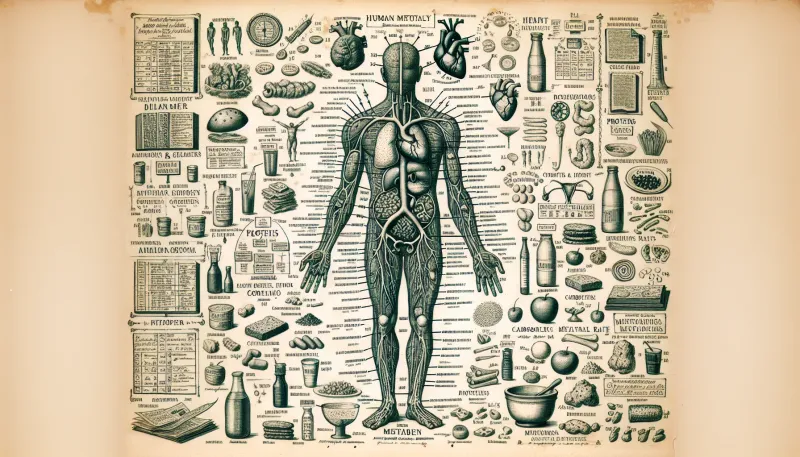Understanding Factors Affecting Metabolic Rate: Key Insights and Tips

Discover the key factors affecting metabolic rate, along with insightful tips to help manage and improve your metabolism.
Metabolism—the complex set of life-sustaining chemical reactions within the body—plays a vital role in determining our overall health and wellbeing. Understanding the factors affecting metabolic rate can be critical for anyone looking to manage their weight, enhance their energy levels, or improve their overall health. This article provides detailed insights into various factors influencing metabolic rate and offers practical tips to help you optimize your metabolism.
What is Metabolic Rate?
Metabolic rate refers to the rate at which your body burns calories and converts food into energy. This process comprises two main components:
- Basal Metabolic Rate (BMR): This is the number of calories your body requires at rest to maintain essential functions like breathing, circulation, and cell production.
- Active Metabolic Rate (AMR): This includes the calories burned during physical activities and exercise.
Key Factors Affecting Metabolic Rate
1. Age
As you age, your metabolic rate tends to slow down. This is largely due to loss of muscle mass and hormonal changes that occur over time. Research suggests that starting in your 30s, your BMR decreases by about 1% per year.
2. Gender
Gender significantly affects metabolic rate. Generally, men have a higher BMR compared to women because they typically have more muscle mass and less body fat. Additionally, hormonal differences also play a role in metabolism variations between genders.
3. Body Composition
The proportions of muscle and fat in your body can greatly influence your metabolic rate. Muscle tissue is more metabolically active than fat tissue. This means that individuals with higher muscle mass tend to have a higher BMR.
4. Genetics
Your genetic makeup can affect how efficiently your body converts calories into energy and your likelihood of gaining weight. Some people may inherit a faster metabolism, while others may have a slower metabolic rate.
5. Physical Activity
Regular physical activity can increase your metabolic rate by building muscle mass and stimulating calorie burn. Both aerobic exercises like running and anaerobic exercises like weight lifting are beneficial in this regard.
6. Hormonal Factors
Hormones such as thyroid hormones and insulin play a significant role in metabolic processes. Conditions like hyperthyroidism can elevate metabolic rate, while hypothyroidism can slow it down.
7. Diet and Nutrition
Your diet profoundly impacts your metabolic rate. Foods high in protein, for instance, can temporarily boost your metabolism through thermogenesis. Likewise, adequate hydration is essential for optimal metabolic functioning.
8. Sleep
Quality and duration of sleep can also affect metabolic rate. Poor sleep can lead to hormonal imbalances that negatively impact metabolism, such as increased production of cortisol, which can contribute to weight gain.
9. Environmental Factors
Surprisingly, environmental factors like temperature can influence metabolic rate. Cold environments can cause your body to burn more calories to maintain its core temperature, while excessively warm environments might have the opposite effect.
Tips to Optimize Your Metabolic Rate
1. Build Muscle Mass
Engage in strength training exercises to build muscle mass, which naturally increases your BMR.
2. Stay Physically Active
Incorporate both aerobic and anaerobic exercises into your routine to maximize calorie burn.
3. Eat a Balanced Diet
Consume a diet rich in proteins, healthy fats, and complex carbohydrates. Avoid skipping meals as it can slow down your metabolism.
4. Stay Hydrated
Drink plenty of water throughout the day to maintain optimal metabolic functions.
5. Get Adequate Sleep
Aim for 7-9 hours of quality sleep per night to keep your metabolism functioning optimally.
6. Manage Stress
Practice stress-reducing activities such as yoga, meditation, or deep-breathing exercises to balance hormonal levels and improve metabolic rate.
Conclusion
Understanding the factors affecting metabolic rate enables you to take proactive steps to manage and improve your metabolism. By focusing on key elements such as diet, physical activity, and sleep, you can optimize your metabolic rate and enhance your overall well-being. Always consult healthcare professionals before making significant lifestyle changes to ensure they're suitable for your specific needs.



























